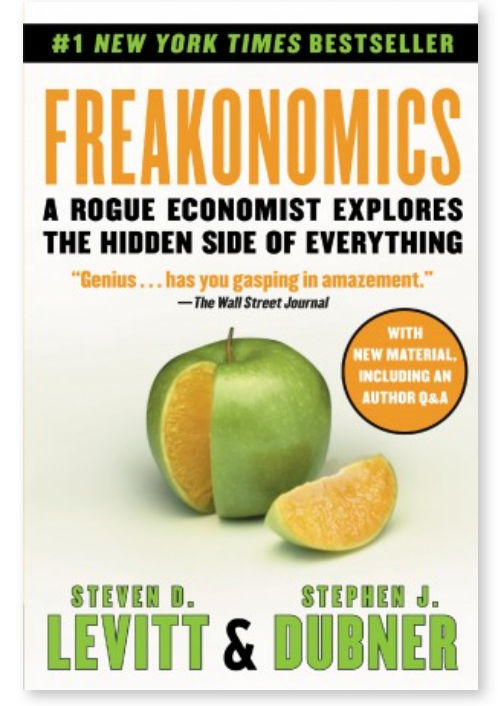Making data interesting: Advice from a word-alchemist
A while back, I wrote about facts being inherently less interesting—and less memorable—than stories. But you can’t avoid data forever; sometimes you have to talk about it. And when that happens, you need a way of making data interesting.
Enter your best friend, the Story. Yes, stories can include data. In fact, journalist Stephen Dubner says they must.
Why should we care what Stephen Dubner says? Because he’s not just a writer; I believe he’s actually an alchemist. A word-alchemist.
Alchemists in the Middle Ages searched for a way to turn base metals like lead into gold. Dubner and his co-author, award-winning economist Steven Levitt, have actually done that. They’ve taken the “dismal science” of economics and turned its principles—and data—into best-sellers with stories so compelling you can’t stop reading.
If you haven’t read Freakonomics, Super Freakonomics, Think Like a Freak, or When to Rob a Bank—perhaps because you assumed that any book about economics had to be dull and boring—I forgive you. That kind of thinking kept me away from them for so long. But, boy was I wrong.
Here’s the opening paragraph of the Bookrags study guide for Freakonomics:
What trait is shared by both Ku Klux Klan members and real-estate agents? In what way do the working worlds of Chicago schoolteachers and Japanese sumo wrestlers intersect? These questions might seem puzzling at first glance, but the answers provided in Freakonomics: A Rogue Economist Explores the Hidden Side of Everything reveal that fundamental notions of economics can be used to interpret just about everything in modern society.
I’m sorry—anyone who can put KKK members and Realtors in the same group has my attention. Talk about making data interesting. And teachers and sumo wrestlers? Can you imagine? It doesn’t matter if you can’t, because Dubner and Levitt have imagined it for you.
Making data interesting: Tell stories
Tim Ferriss interviewed Stephen Dubner on his podcast a couple of years ago—I just got around to listening to it this week—and Dubner’s description of a good story fascinated me:
But to me what a story is it’s got the narrative but it does include…data and time series. Data, because you need to know the magnitude of the story—is it really important? And time series because you need to know if it was a kind of blip or if it really persisted. And that to me are the elements of a good story: data, a time series and a narrative with characters that people can identify with. And by the way, it needs to all be true.
It all needs to be true. The best stories always are.
So don’t think you have to bombard people with data to get them to trust you. Facts—even millions of them—can’t build trust on their own. And people won’t remember them, anyway, unless they’re set in a story. A true story. Told by you, from your heart, with memorable characters that people can identify with.
It’s simple. Even when you’re talking about a complex subject like economics.
Elaine, very nice post. I can confirm how well this works, as I have been weaving stories around my data guys for the last couple of years!